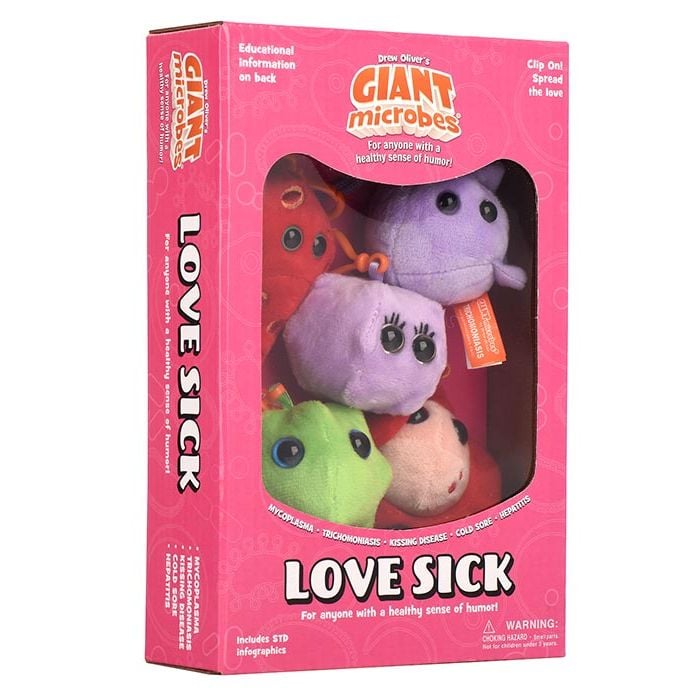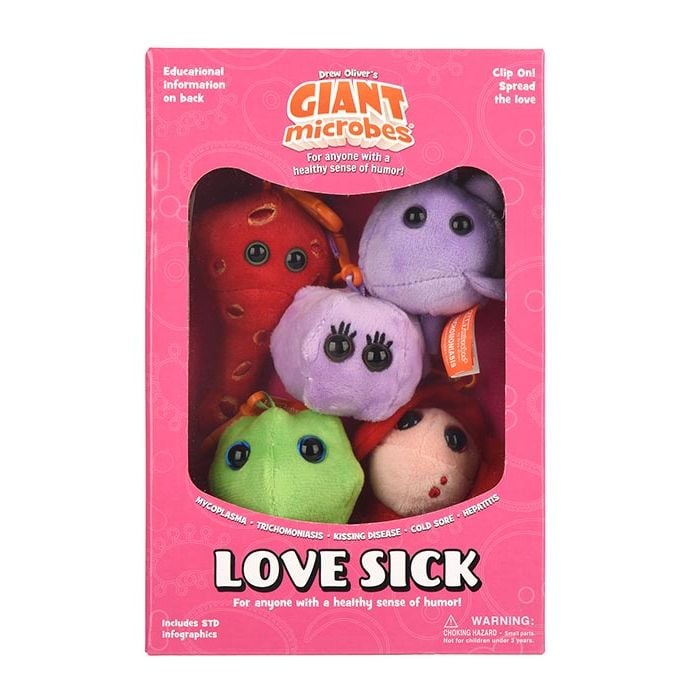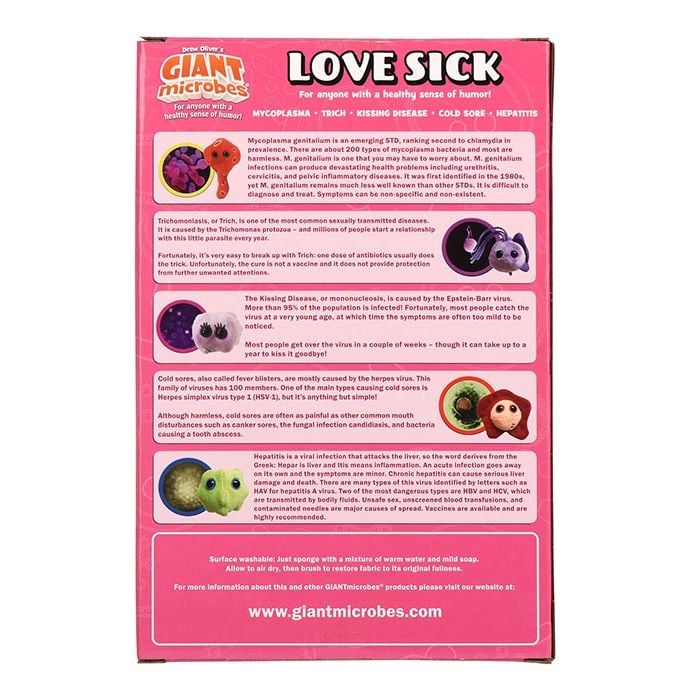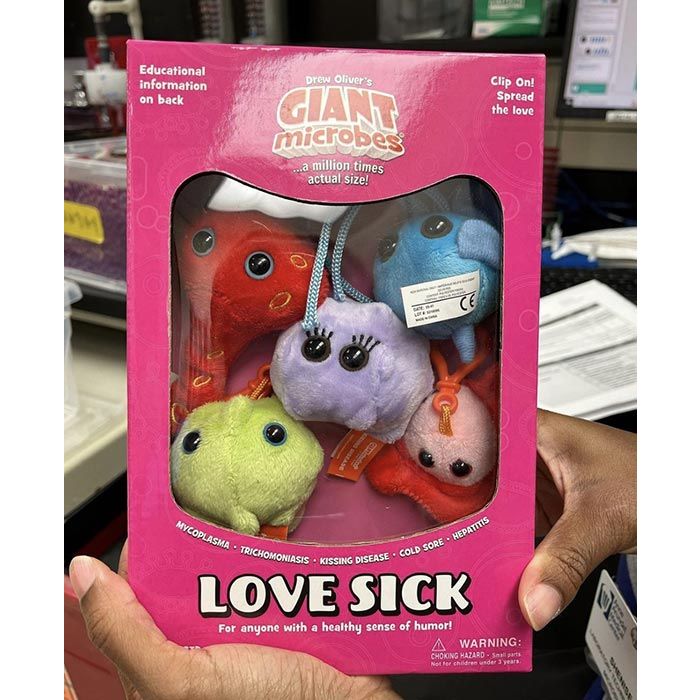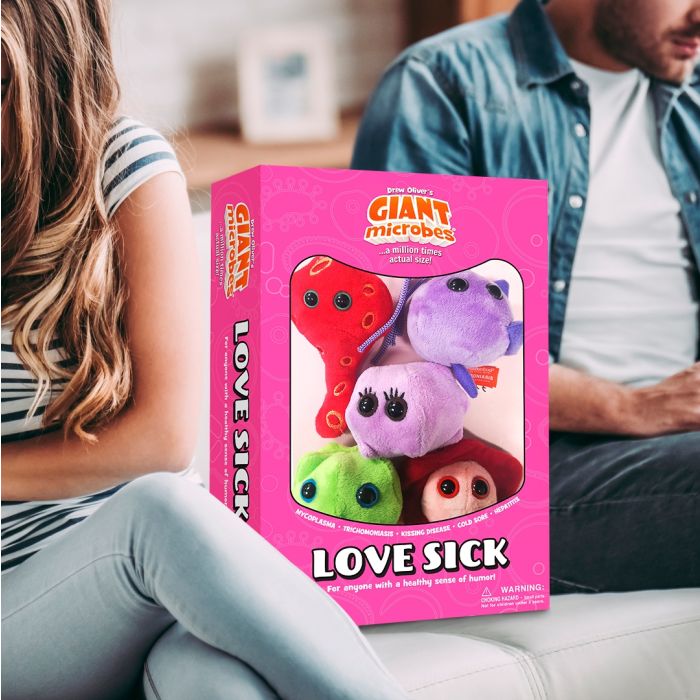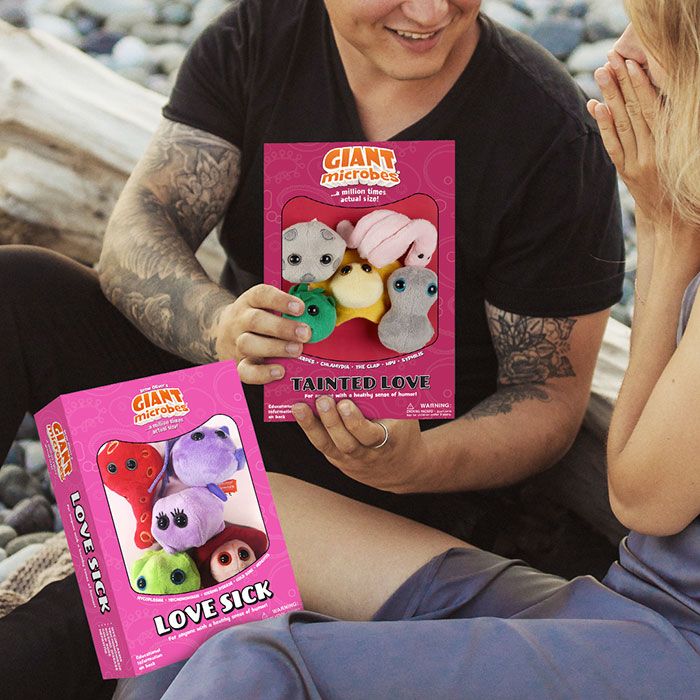Love Sick
Out of Stock
The kind of love (in this box), you’re so sick of it.
You’re love sick, hope you don’t meet these germs.
STDS and little nasties, trying to come to terms.
This unique, amusing and memorable gift box will spread the facts and help you be smart and safe when love comes your way.
Love Sick themed gift box includes these mini microbe key chains: Mycoplasma, Trichomoniasis, Kissing Disease, Cold Sore and Hepatitis.
Educational infographic on STDs also included.
Clip them onto your backpack, keys or anywhere! Includes key chain clips.
Product Details
Additional Information
| Sizes | Giantmicrobes are based on actual microbes, cells, organisms and other critters, only 1,000,000 times actual size! Gigantic (GG) 40-60cm XL (XL) 25-38cm Original (PD) 12-20cm Keychain (KC) 5-10cm with clip |
|---|---|
| Materials | Plush from all new materials. Stuffed with polyester fiber fill. Surface washable: sponge with water & soap, air dry. |
| Packaging | Each plush microbe includes a printed card with fun, educational and fascinating facts about the actual microbe or cell. |
| Safety | Every product meets or exceeds U.S. and European standards for safety. For ages 3 and up. |
All about Love Sick
MYCOPLASMA - Mycoplasma genitalium is an emerging STD, ranking second to chlamydia in prevalence. There are about 200 types of mycoplasma bacteria and most are harmless. M. genitalium is one that you may have to worry about. M. genitalium infections can produce devastating health problems including urethritis, cervicitis, and pelvic inflammatory diseases. It was first identified in the 1980s, yet M. genitalium remains much less well known than other STDs. It is difficult to diagnose and treat. Symptoms can be non-specific and non-existent.
TRICHOMONIASIS - Trichomoniasis, or Trich, is one of the most common sexually transmitted diseases. It is caused by the Trichomonas protozoa – and millions of people start a relationship with this little parasite every year.
Fortunately, it’s very easy to break up with Trich: one dose of antibiotics usually does the trick. Unfortunately, the cure is not a vaccine and it does not provide protection from further unwanted attentions.
KISSING DISEASE - The Kissing Disease, or mononucleosis, is caused by the Epstein-Barr virus. More than 95% of the population is infected! Fortunately, most people catch the virus at a very young age, at which time the symptoms are often too mild to be noticed.
Most people get over the virus in a couple of weeks – though it can take up to a year to kiss it goodbye!
COLD SORE - Cold sores, also called fever blisters, are mostly caused by the herpes virus. This family of viruses has 100 members. One of the main types causing cold sores is Herpes simplex virus type 1 (HSV-1), but it’s anything but simple!
Although harmless, cold sores are often as painful as other common mouth disturbances such as canker sores, the fungal infection candidiasis, and bacteria causing a tooth abscess.
HEPATITIS - Hepatitis is a viral infection that attacks the liver, so the word derives from the Greek: Hepar is liver and Itis means inflammation. An acute infection goes away on its own and the symptoms are minor. Chronic hepatitis can cause serious liver damage and death. There are many types of this virus identified by letters such as HAV for hepatitis A virus. Two of the most dangerous types are HBV and HCV, which are transmitted by bodily fluids. Unsafe sex, unscreened blood transfusions, and contaminated needles are major causes of spread. Vaccines are available and are highly recommended.













